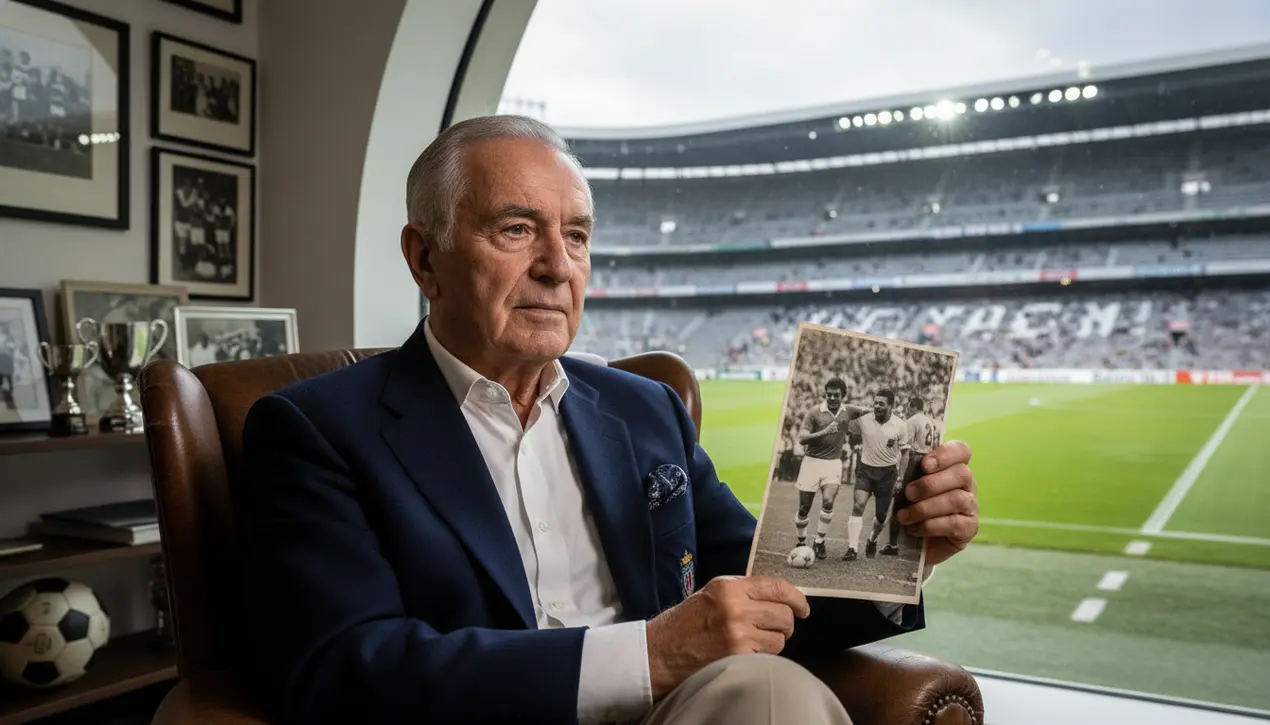
SportfootballFIFA World Cup
Antonio Simões Reflects on Benfica Glory, Eusébio, and the Rise of Soccer in the U.S.
JA
Jack Turner
3 hours ago7 min read1 comments
The story of António Simões is not merely a chronicle of trophies won; it is a masterclass in footballing intelligence and emotional resilience, a narrative that connects the hallowed turf of Lisbon’s Estádio da Luz to the nascent pitches of 1970s America. His journey began not as a star, but as a wide-eyed 15-year-old joining the club he adored, Benfica.The statistics from his tenure are staggering—over 300 appearances, 10 Primeira Divisão titles, four Taças de Portugal—but they only hint at the seismic impact of his career. The defining moment arrived in the 1962 European Cup final, where an 18-year-old Simões became the youngest player ever to lift the continent’s most coveted prize, a record that stands unchallenged to this day.Facing a Real Madrid side that was a veritable pantheon of gods, featuring the indomitable Alfredo Di Stéfano and the thunderous Ferenc Puskás, Simões experienced a fleeting moment of existential dread. 'I looked to my left and saw Di Stéfano, Puskás.I don’t remember what I did, but I remember saying to myself, ‘What the heck am I doing here?'' he recalls. Yet, when the whistle blew, the boy became a man, his performance emblematic of a Benfica side that dethroned a dynasty, a victory that resonates like Leicester City’s Premier League triumph, but on a far grander, European scale.His 14-year partnership with the immortal Eusébio was the engine of this golden era, a synergy that produced more than 700 games together and forged a bond that transcended sport. 'Football is more than a game and can create very strong relationships with your teammates,' Simões reflects, his words underscoring a chemistry that modern analytics can quantify in goals and assists, but never fully capture in human terms.This foundation of glory made his subsequent pivot to the North American Soccer League in 1975 all the more audacious. Driven by the political turmoil of Portugal’s Carnation Revolution, Simões traded a cemented legacy for a frontier.His time with the Boston Minutemen, San Jose Earthquakes, and Dallas Tornado was not a victory lap; it was a missionary endeavor, part of a vanguard including Pelé and his friend Eusébio, tasked with planting the seed of soccer in a land dominated by other sports. The cultural chasm was vast.'At that time, they lacked the culture of the game,' he observed, pointing to a fundamental lack of tactical nuance and historical context that separated the American soccer experiment from the deep-rooted traditions of Europe. Today, Simões watches the evolution of the sport in the U.S. with the discerning eye of an architect viewing a completed building.The journey from the NASL’s uncertain pitches to MLS’s gleaming, soccer-specific cathedrals and world-class academies represents, in his view, 'an incredible evolution. ' He notes that the U.S. now possesses all the requisite components—infrastructure, youth development, and a growing cultural footprint—to compete at the highest level, a sentiment that will be put to the ultimate test when the nation co-hosts the 2026 FIFA World Cup.Drawing a parallel to the successful 1994 tournament, Simões anticipates an even greater spectacle, crediting the American genius for merging elite sport with unparalleled showmanship. 'They combine show business and the game,' he states, envisioning a World Cup that will be a landmark event not just for soccer, but for global entertainment. From facing Puskás to pioneering in America, Simões’s career is a testament to football’s unique power to shape destinies and bridge continents, a living history lesson from a man who didn't just watch the game evolve, but actively pushed it forward.
#Antonio Simões
#Benfica
#Eusébio
#NASL
#US Soccer Growth
#European Cup
#featured
Stay Informed. Act Smarter.
Get weekly highlights, major headlines, and expert insights — then put your knowledge to work in our live prediction markets.
Related News
Comments
Loading comments...
© 2025 Outpoll Service LTD. All rights reserved.